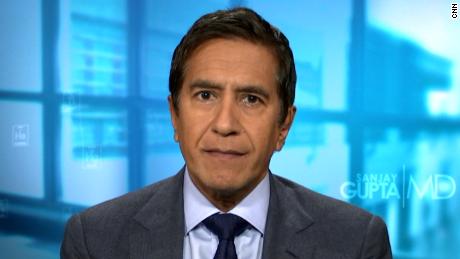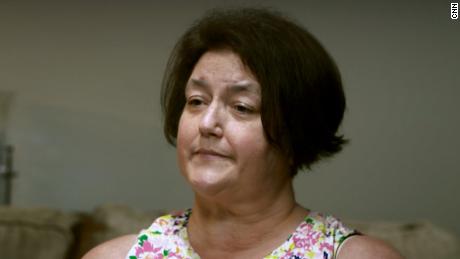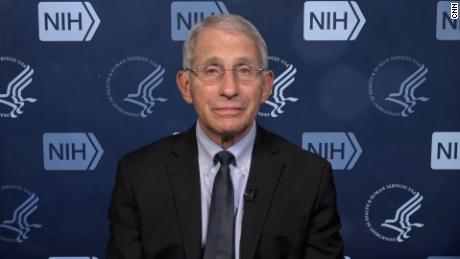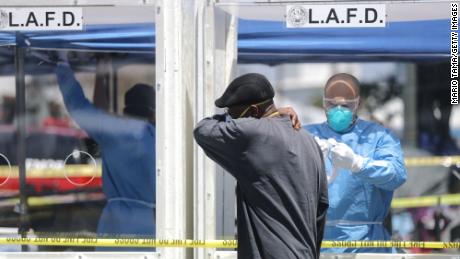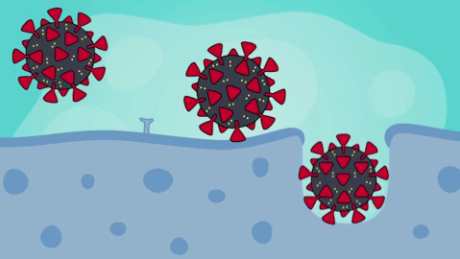London (CNN)The United Kingdom has identified a new, more contagious coronavirus variant linked to a recent surge in cases in England.
The new mutation is being called VUI-202012/01 -- the first "Variant Under Investigation" in the UK in December 2020. While scientists hunt for more information about the variant, its impact is already being felt, with dozens of countries imposing restrictions on travelers from the UK.
Here's what you need to know.
What is a variant and why are officials concerned about this one?
A variant occurs when the genetic structure of a virus changes. All viruses mutate over time and new variants are common, including for the novel coronavirus.
Like other variants, this one carries a genetic fingerprint that makes it easy to track, and it happens to be one that is now widespread in southeast England. That alone does not necessarily mean a variant is more contagious or dangerous.
But scientists advising the UK government have estimated that this variant could be up to 70% more effective at spreading than others. Peter Horby, chair of the New and Emerging Respiratory Virus Threats Advisory Group (NERVTAG), said Wednesday that scientists were "confident" the new variant is "spreading faster than other virus variants."
Speaking at an emergency meeting of the UK Parliament Science and Technology Committee, Horby explained that the new variant has "some kind of biological advantage to make it spread faster."
Scientists still don't have a complete picture as to why, he said, but that there were a few different scenarios they were investigating.
There is preliminary evidence to suggest that the new strain results in a person holding a higher viral load, which means the virus is easier to pass on, Horby said.
Another possibility is that people are becoming infected more quickly after exposure, he said. It's also possible, he added, that people are infectious for longer.
All of these potential explanations, however, lead to the same conclusion: The virus is spreading faster.
England's chief medical officer, Chris Whitty, has said the variant contains 23 changes, including 17 key "non-synonymous" mutations.
"These [17] are ones that change the protein sequence of one of the viral genes," said Jeffrey Barrett, lead Covid-19 statistical geneticist at the UK's Wellcome Sanger Institute, according to the Science Media Centre.
The World Health Organization said Tuesday that these mutations "may influence the transmissibility of the virus in humans," though it added that further laboratory investigations were needed.
Scientist Neil Ferguson, a member of NERVTAG, said Monday that the variant may be more infectious for children. "There is a hint is that [the variant] ... has a higher propensity to infect children," he told a press briefing organized by the Science Media Centre (SMC), though he cautioned that more data was needed. Severe illness due to Covid-19 is still relatively rare for children.
The findings have immediate implications for virus control. More cases could place an even greater strain on hospitals and health care staff just as they enter an already particularly difficult winter period, and ultimately lead to more deaths.
Where did the variant originate and how has it taken hold?
The new variant is believed to have originated in southeast England, according to the WHO. Public Health England (PHE) says backwards tracing, using genetic evidence, suggests the variant first emerged in England in September. It then circulated in very low levels until mid-November.
"The increase in cases linked to the new variant first came to light in late November when PHE was investigating why infection rates in Kent [in southeast England] were not falling despite national restrictions. We then discovered a cluster linked to this variant spreading rapidly into London and Essex," PHE said.
But Sharon Peacock, professor of public health and microbiology at the University of Cambridge, said scientists did not know whether the mutation had originated in southeast England or whether it was introduced there from elsewhere.
Speaking at a press briefing on Tuesday, Peacock also praised the strength of the UK's genetic surveillance operation. "If you're going to find [a variant] anywhere, you're going to find it probably here first," she said. "And if this occurs in places that don't have any sequencing, you're not going to find it at all unless you're using [other methods.]"
Whitty said Saturday the variant was responsible for 60% of new infections in London, which have nearly doubled in the last week alone. On Wednesday, Northern Ireland's Health Minister Robin Swann said the variant was detected in its borders.
The region's health authorities said it was "increasingly likely" that the new variant has established itself across the UK."I would advise the public to act on the assumption that it is already well established in Northern Ireland and that the person they pass in the street or stand next to in a queue may have it," the region's Chief Medical Officer Dr. Michael McBride said in a statement.
Some experts have suggested that this new variant could have been amplified because of a superspreader event, meaning the current spike in cases could also have been caused by human behavior.
"When we first started to see this enormous rise, it could have been a number of things. It could have been [due to] changes in behavior," said Judith Breuer, professor of virology at UCL, during a briefing on Tuesday.
"[But now] it is very clear that there is a significant rise in the prevalence of this variant and that this is likely to be due to biological features of the variant and indeed increased transmissability."
Which countries are affected?
The variant has already spread globally. As well as the UK, the variant has also been detected in Denmark, Belgium, the Netherlands and Australia, according to the WHO.
Australia has identified two cases of the variant in a quarantined area in Sydney and Italy has also identified one patient infected with the variant.
A similar but separate variant has also been identified in South Africa, where scientists say it is spreading quickly along coastal areas of the country.
On Wednesday, British health authorities said that two cases of the South African variant had been detected in the UK. Public Health England Managing Director Susan Hopkins said that the Covid-19 variants discovered in the UK and in South Africa are both "more transmissible."
Is the new variant more deadly?
There is no evidence as of now to suggest that the new variant is more deadly, according to Whitty and the WHO, though it is too early to tell.
Several experts have noted that in some cases, virus mutations that increase transmissibility are accompanied by a drop in virulence and mortality rates.
"As viruses are transmitted, those that allow for increased virological 'success' can be selected for, which changes the properties of the virus over time. This typically leads to more transmission and less virulence," Martin Hibberd, professor of emerging infectious disease at the London School of Hygiene & Tropical Medicine, told the SMC.
Will the developed vaccines work against this variant?
There are no signs yet that the current vaccine frontrunners won't work against this new variant, experts and drugmakers have said.
The companies behind the first two vaccines to gain authorization in the US -- Pfizer/BioNTech and Moderna -- are testing their shots to double-check that they're effective against the variant.
The coronavirus has mutated before, and both firms say their vaccines worked against other variations of the virus.
BioNTech's CEO Ugur Sahin said he has "scientific confidence" that the current Pfizer-BioNTech vaccine could work against the new variant, but full data will be available in two weeks.
Some US-based scientists have said that it's possible this new variant might, to a small extent, undermine the vaccines.
Trevor Bedford, an associate professor in the vaccine and infectious disease division of the Fred Hutchinson Cancer Research Center, said: "You could imagine some modest hit to vaccine efficacy, which wouldn't be good, but I don't think it will break the vaccine."
Bedford explained that the variant could possibly lower the Pfizer/BioNTech vaccine's effectiveness from 95%, which would be a "a modest effect -- not a dramatic effect."
BioNTech's Sahin said the new variant may however require countries to vaccinate more of the population, raising the bar for achieving herd immunity.
"[On] the topic of herd immunity there is always the discussion about 60-70%," he told a news conference Tuesday. "But if the virus becomes more efficient in infecting people, we might need even a high vaccination rate to ensure that normal life can continue without interruption."
What measures are being taken to contain the variant?
Large swathes of England, including London and the southeast, are now under strict Tier 4 Covid-19 restrictions, and UK government health experts have suggested additional restrictions could be required to beat back this variant.
Dozens of countries across Europe, the Middle East and the Americas have also announced travel bans for the UK, or new testing and quarantine requirements for UK arrivals.
The White House is considering requiring travelers from the UK to present proof of a negative test before arriving in the US, two administration officials have told CNN.
In the UK, new measures were announced to combat the potential spread of the South African variant on Wednesday, with travelers arriving into the UK from South Africa now having to quarantine for 15 days upon arrival. People in the UK who have been in contact with people arriving from South Africa in the past 15 days have also been instructed to go into quarantine immediately.
In its press release on Tuesday, the WHO issued a reminder of the basic measures to reduce the transmission of the virus: avoid close contact with people who are infected, wash your hands frequently, and wear a mask.


